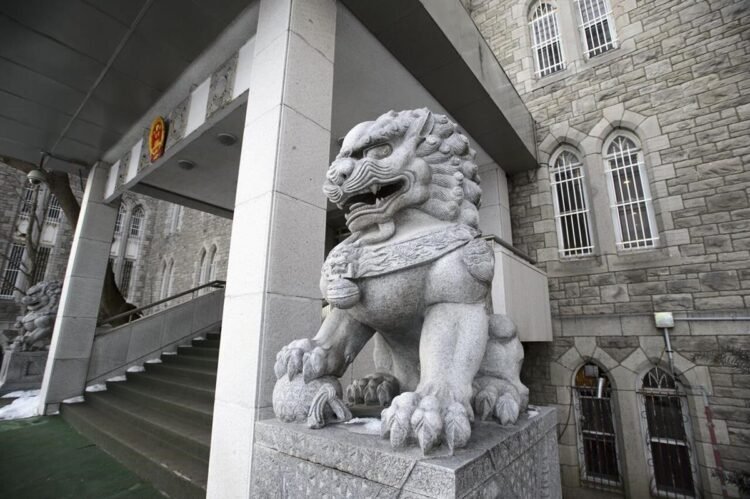China has criticized Canada for alleged double standards on human rights, pointing to issues faced by Indigenous Peoples in Canada. The accusations came in response to Ottawa’s recent sanctions against eight Chinese officials accused of committing “grave human rights violations” against ethnic and religious minorities. Canada has also voiced concerns about democracy in Hong Kong.
Last month, Global Affairs Canada issued a statement condemning reports of arbitrary detentions and violent treatment of Uyghur people, along with the repression of Tibetans and Falun Gong practitioners. The statement also criticized China’s issuance of international bounties for Hong Kong democracy activists, including Canadians.
China has dismissed these claims as baseless and responded by imposing its own sanctions on Canadian activists and organizations advocating for minorities in China. These sanctions prohibit Chinese citizens from engaging with these groups.
Chinese state media has amplified criticism of Canada, highlighting systemic issues affecting Indigenous Peoples. “Canada is in no position to lecture others on human rights,” Chinese Foreign Ministry spokesperson Mao Ning said during a press conference on December 11, according to an official translation. “Even today, Canada’s Indigenous people still face systemic racial discrimination and unfair treatment. Instead of addressing these issues, Canada chooses to smear and vilify other countries.”
Mao further stated that “China has achieved enormous progress in human rights, which no unbiased observer can deny.” She went on to describe Canada’s actions as a “hypocritical political stunt” aimed at pleasing the United States.
China’s embassy in Ottawa has echoed these sentiments on social media, sharing a political cartoon by state-run media outlet CGTN. The cartoon depicts a tattered-beaver home criticizing an immaculate panda house, captioned: “Canada turns a blind eye to systemic racism and unfair treatment of Indigenous people while fabricating accusations against China’s human-rights progress. Its political manipulation is nothing more than a hypocritical farce.”
The United Nations has also weighed in on human rights in both countries. A November 2023 review acknowledged Canada’s progress in Indigenous rights and housing but urged further action. The UN called on Canada to address abuses by Canadian mining corporations abroad, reduce the overrepresentation of minorities in prisons and child welfare, and uphold Indigenous Peoples’ rights to free, prior, and informed consent.
Similarly, a January 2024 UN assessment of China acknowledged some progress in policies for women and children. However, it urged Beijing to ensure that detainees are formally accounted for, granted access to their families, and held in officially recognized detention facilities. The UN also recommended that China respect freedoms of religion, belief, opinion, peaceful assembly, and cultural rights, particularly for Tibetans, Uyghurs, and other minorities. It further criticized China’s counterterrorism laws, stating they fail to comply with international human rights standards, including in Hong Kong.

 English
English



























































